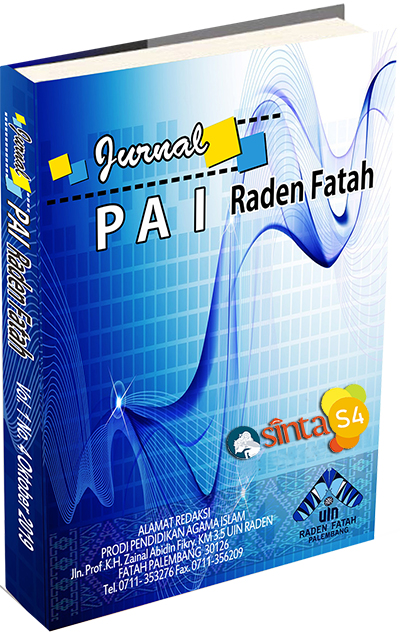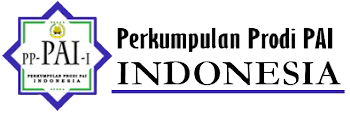Finding the Spirit in Learning: An Effective Approach in Islamic Education
DOI:
https://doi.org/10.19109/pairf.v7i3.28319Keywords:
Learning, Approach, Effective, Islamic EducationAbstract
Islamic education is intended not only as a means of knowledge transmission but also as a foundation for nurturing character and spiritual awareness. However, the learning process in many institutions has increasingly shifted toward cognitive and academic focus, often marginalizing its spiritual essence or ruh. This study aims to identify and analyze learning approaches that address this gap by revitalizing the spiritual core of Islamic education. Using a systematic literature review of peer-reviewed national and international publications from the past decade, this research highlights five key approaches: holistic-integrative, exemplary (uswah hasanah), contemplative-reflective, contextual value-based, and digital storytelling. These approaches were selected based on clear pedagogical indicators and consistent references across various studies. They align with the foundational objectives of Islamic education as formulated by scholars such as Al-Attas and Al-Ghazali. This study contributes to the discourse on Islamic pedagogy by recommending the structured integration of these approaches into curriculum design, instructional strategies, and professional teacher development programs.
References
Achmad Ushuluddin et al. “Religion and Spirituality in Society Human Intelligence in Islam” 11, no. 2 (n.d.).
Al-Attas, S. M. N. The Concept of Education in Islam: A Framework for an Islamic Philosophy of Education. Kuala Lumpur: International Institute of Islamic Thought and Civilization (ISTAC), 1980.
Arifin, I. Filsafat Pendidikan Islam: Telaah Terhadap Asas Dan Konsep Pendidikan Islam. Jakarta: Bumi Aksara, 2009.
Azizatus Shofiyyah, N., Ulum, M., & Zaelani, M. I. “Investigating Transformative Approaches in Islamic Education through Digital Stories to Shape the Future of Learning.” International Journal of Social Science 1, no. 1 (2025): 26–39.
Cichocka, A. “Understanding Defensive and Secure In-Group Positivity: The Role of Collective Narcissism.” European Review of Social Psychology 27, no. 1 (2016): 283–317.
Friedman, M. The Social Responsibility of Business Is to Increase Its Profits. New York Times Magazine, 1970.
Halstead, J Mark. “An Islamic Concept of Education.” Comparative Education 40, no. 4 (2004): 517–29. https://doi.org/10.1080/0305006042000284510.
Harahap, M. “Islamic Education as the Spiritual and Moral Foundation for the Younger Generation.” International Journal of Islamic Education 5, no. 2 (2023): 123–35.
Hashim, Rosnani. “Rethinking Islamic Education in Facing the Challenges of the Twenty-First Century.” American Journal of Islamic Social Sciences 31, no. 3 (2014): 1–20.
Jalaluddin. Psikologi Agama. Jakarta: Raja Grafindo Persada, 2012.
Jamil, S. “Analisis Relevansi Pendidikan Nasional Dan Pendidikan Islam.” Jurnal Wistara 4, no. 2 (2023): 111–20.
Jiang, J, D Cai, Q Yang, and M Huang. “Scientometric Insights into Urban Sustainability: Exploring the Vulnerability-Adaptation-Settlements Nexus for Climate Resilience.” Frontiers in Environmental Science 13 (2025).
Juwairiyah, & Fanani, Z. “Integration of Islamic Values in Learning Methods: Building Character and Spirituality in the Digital Era.” AL-WIJDÁN: Journal of Islamic Education Studies 10, no. 1 (2025): 45–60.
Kannan, P, and others. “A Systematic Literature Review on Artificial Intelligence in Transforming Precision Agriculture for Sustainable Farming: Current Status and Future Directions.” Plant Science Today, 2024.
Liakos, K, P Busato, D Moshou, S Pearson, and D Bochtis. “Machine Learning in Agriculture: A Review.” Sensors, 2018.
Mkumbukiy, A, T Loghmani-Khouzani, K Madani, and E Guenther. “Agrifood Systems’ Resilience for Sustainable Food Security amid Geopolitical Tensions: A Systematic Literature Review.” Frontiers in Sustainable Food Systems 9 (2025): 1546851.
Niyozov, Sarfaroz, and Nadeem Memon. “Islamic Education and Islamization: Evolution of Themes, Continuities and New Directions.” Comparative Education Review 55, no. 3 (2011): 389–411. https://doi.org/10.1086/660798.
Noddings, N. Educating Moral People: A Caring Alternative to Character Education. Teachers College Press, 2002.
Oleiro Ara’ujo, S, R Silva Peres, J Cochicho Ramalho, F Lidon, and J Barata. “Machine Learning Applications in Agriculture: Current Trends, Challenges, and Future Perspectives.” Agronomy 12 (2023): 2976.
Osman, Rabiatul, and Rosnidar Ab. Rahman. “Spiritual Intelligence and Its Impact on Educational Leadership in Islamic Schools.” Journal of Educational Administration 61, no. 2 (2023): 231–48. https://doi.org/10.1108/JEA-04-2022-0063.
Retno, I., Syifa, S., Zidny, H., Syahidin, S., & Parhan, M. “Harmonisasi Pendidikan Ruh, Akal, Dan Badan Dalam Filsafat Pendidikan Islam.” Al-Thariqah: Jurnal Ilmiah Studi Islam 10, no. 1 (2025): 1–15.
Saepudin, A. “Holistic Islamic Education: Assessing the Impact of Integrative Curricula on Moral and Spiritual Development in Secondary Schools.” International Journal of Science and Society 6, no. 1 (2024): 1072–83.
Sahin, Abdullah. “Critical Issues in Islamic Education Studies: Rethinking Islamic and Western Liberal Secular Values of Education.” Religious Education 113, no. 3 (2018): 304–15. https://doi.org/10.1080/00344087.2018.1445707.
Schon, Donald A. The Reflective Practitioner: How Professionals Think in Action. New York: Basic Books, 1983.
Snyder, H. “Literature Review as a Research Methodology: An Overview and Guidelines.” Journal of Business Research 104 (2019): 333–39.
Subagyo, Achmad, and Miftahul Huda. “Digital Technology for Islamic Education: Opportunities and Challenges.” International Journal of Emerging Technologies in Learning (IJET) 15, no. 3 (2020): 234–44. https://doi.org/10.3991/ijet.v15i03.11801.
Sugiyono, D. Metode Penelitian Kuantitatif, Kualitatif, Dan R&D. Bandung: Alfabeta, 2017.
Sukeriyadi, M., & Duraesa, M. A. “Analisis Hasil Penelitian Pendidikan Islam Dengan Pendekatan Kearifan Lokal Dalam Perspektif Budaya.” Jurnal Kolaboratif Sains 6, no. 12 (2023): 1874–85.
Wan Daud, Wan Mohd Nor. “The Educational Philosophy and Practice of Syed Muhammad Naquib Al-Attas: An Exposition of the Original Concept of Islamization.” Islamic Studies 56, no. 1 (2017): 45–70.
Zed, M. Metode Penelitian Kepustakaan. Jakarta: Yayasan Obor Indonesia, 2008.












.png)


1.png)



